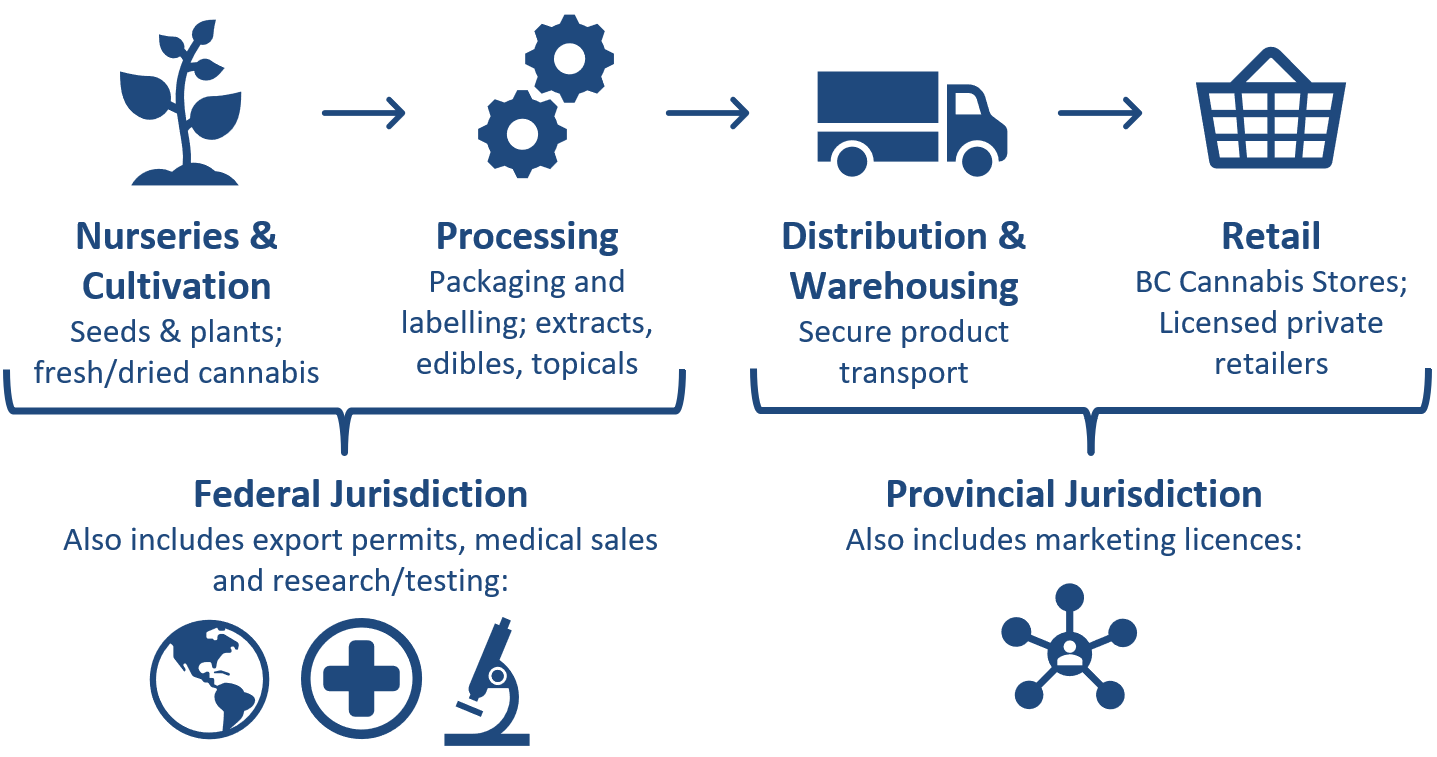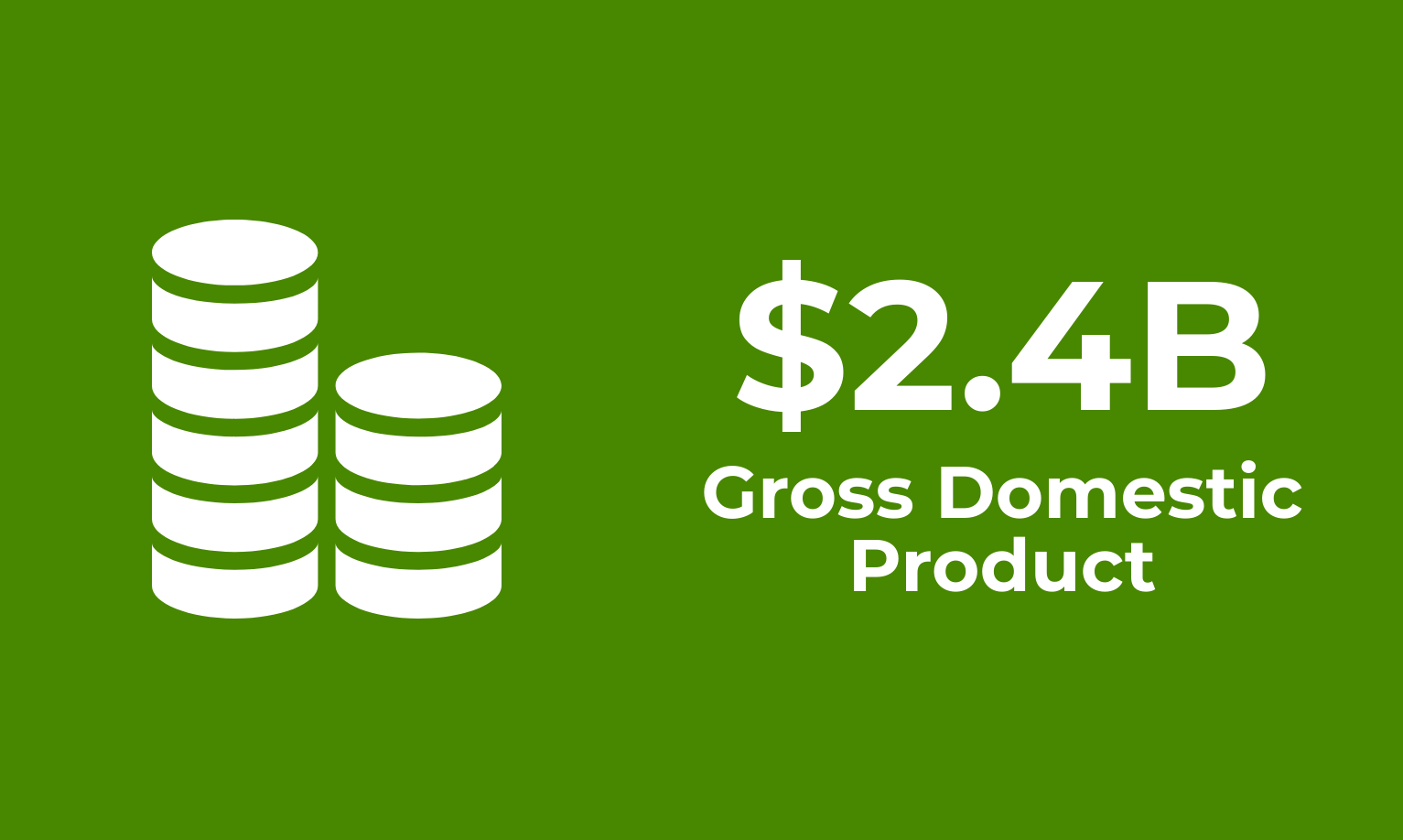Learn about B.C.'s Cannabis Sector
Did you know that B.C.'s cannabis sector contributes over $2 billion each year to local economies throughout the province? However, much of this economic activity still occurs among unlicensed businesses.
Economic development is a guiding principle of B.C.’s regulated approach to cannabis. In addition to protecting public health and safety, B.C. is committed to helping cannabis producers and retailers enter and succeed in the licensed framework, with the goal of promoting sustainable economic development and reducing unregulated activity.
If you’re looking to become a licensed cannabis producer in B.C., check out our step-by-step guide to ensure you meet all the regulatory requirements. You can also apply to become a licensed cannabis retailer.
Sector Overview
The cannabis sector consists of many specialized areas of expertise, ranging from the development of new crop varieties and growing techniques, to managing retail stores and tracking inventory.
In Canada, the federal government regulates the production of cannabis. This includes nurseries, cultivation, and processing. The federal government is also responsible for export licensing, medical sales, and research approvals.
Provinces and territories are responsible for the regulation of cannabis distribution and retail, which also includes the granting of retail marketing licences.

Local governments and Indigenous nations also play a key role in the regulation of cannabis, particularly in relation to land use for cannabis production and retail licensing.
Value-add of Legal Cannabis
There are strict laws and regulations around the legalization of cannabis that require each batch or lot of cannabis to undergo third-party testing. These requirements are not mandatory for unlicensed producers.
Third-party testing facilities like Anandia and Valens test cannabis for:
- Residual solvents, pesticides, heavy metals, aflatoxins, and other microbial contaminants
- They also test for the strength of products, which helps ensure products package readings of CBD and THC content is accurate
To learn more about other third-party testing facilities visit Health Canada’s authorized laboratories webpage.

Cannabis production and retail contributed approximately $2.4 billion to B.C.’s gross domestic product (GDP) in 2019.
Learn More
Contact information
Cannabis.Secretariat@gov.bc.ca
AgriServiceBC@gov.bc.ca
